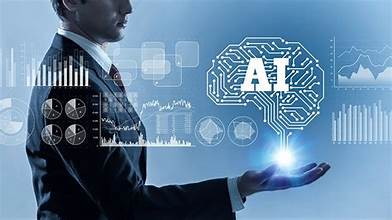Artificial Intelligence (AI) has become a widely discussed topic across various industries, and engineering is no exception. The integration of AI in engineering has revolutionized the way engineers approach design, manufacturing, and maintenance processes. From predicting machine failures to optimizing product designs, AI has introduced new possibilities in the engineering field. This article aims to delve into a detailed analysis of the present state and future potential of AI in engineering.
Current Landscape of AI in Engineering
The use of AI in engineering has experienced rapid growth in recent years. According to a McKinsey & Company report, the adoption of AI in engineering has been increasing by 25% annually since 2015. The report predicts that the use of AI in engineering will continue to grow, becoming an integral part of engineering processes in the years to come.
Key Applications of AI in Engineering
The integration of AI in engineering has unlocked several new applications, including design, manufacturing, and maintenance. Here are some of the key AI applications in engineering:
Design: AI is being utilized to optimize product designs, reducing the time and cost required for design iterations. AI algorithms can analyze design data, identify potential flaws, and suggest improvements. For instance, Siemens Digital Industries Software employed AI and machine learning to optimize the design of a Formula 1 car, resulting in a 1.3% reduction in lap time.
Manufacturing: AI is enhancing manufacturing processes, increasing efficiency, and reducing costs. AI algorithms can monitor production lines, detect anomalies, and allow for the early identification of potential failures. According to a MarketsandMarkets report, the AI in manufacturing market is projected to grow from USD 1.1 billion in 2020 to USD 16.7 billion by 2026, with a CAGR of 57.2% during the forecast period.
Maintenance: AI is being used to predict machine failures, reducing downtime and maintenance costs. AI algorithms analyze data from sensors and other sources to predict when maintenance is required. For example, the University of Waterloo used AI to develop an intelligent pavement monitoring system that predicts pavement deterioration and schedules maintenance, resulting in significant cost savings and improved safety.
While AI has introduced new possibilities in engineering, it also presents some challenges. Here are some of the advantages and challenges of using AI in engineering:
Advantages:
- Improved efficiency and productivity
- Reduced costs
- Enhanced quality and accuracy
- Predictive maintenance
Challenges:
- Data quality and quantity
- Limited availability of skilled personnel
- Integration with existing systems
- Ethics and biases
Successful AI Implementations in Engineering: Case Studies
Several organizations have successfully implemented AI in their engineering processes, resulting in significant improvements in efficiency and cost savings. Here are some case studies:
- Siemens Digital Industries Software used AI and machine learning to optimize the design of a Formula 1 car, resulting in a 1.3% reduction in lap time.
- The University of Waterloo employed AI to develop an intelligent pavement monitoring system that predicts pavement deterioration and schedules maintenance, resulting in significant cost savings and improved safety.
- GE Aviation utilized AI to optimize the maintenance of aircraft engines, leading to improved reliability and reduced maintenance costs.
Emerging Trends and Innovations in AI for Engineering
As the use of AI in engineering continues to grow, new trends and innovations are emerging. Here are some of the emerging trends in AI for engineering:
- Machine learning: Machine learning algorithms are being used to analyze large amounts of data, identify patterns, and make predictions.
- Engineering technology: AI is being used to develop new engineering technologies, such as autonomous vehicles and drones.
- Digitalization: AI is driving digitalization in the engineering industry. By leveraging AI, engineering firms can streamline their operations, automate workflows, and enhance productivity, enabling them to stay competitive in a rapidly changing market.
- Intelligent Automation: AI is driving intelligent automation in the engineering industry. By combining AI with robotics and other advanced technologies, engineering firms can create intelligent systems capable of performing complex tasks with speed and accuracy, saving time and money while improving work quality.
- Industry 4.0: AI is a key enabler of Industry 4.0, the fourth industrial revolution transforming the way we live and work. Industry 4.0 integrates advanced technologies such as AI, the Internet of Things (IoT), and cloud computing into industrial processes, enabling engineering firms to create smarter factories with connected machines and sensors that can communicate and collaborate in real-time.
Conclusion
In conclusion, the impact of AI on the engineering industry is undeniable. From design and manufacturing to maintenance and optimization, AI is transforming the way engineers work, and the possibilities for the future are endless. By harnessing the power of AI, engineers can improve efficiency, reduce costs, and create safer and more sustainable products and processes. However, like any new technology, there are also challenges that need to be addressed, such as the need for skilled AI professionals and concerns about data privacy and security. Nevertheless, the potential benefits of AI in engineering far outweigh the risks, and it is clear that AI will continue to play an increasingly important role in the future of engineering.
- compiled by Gomes Singh Adhikari




